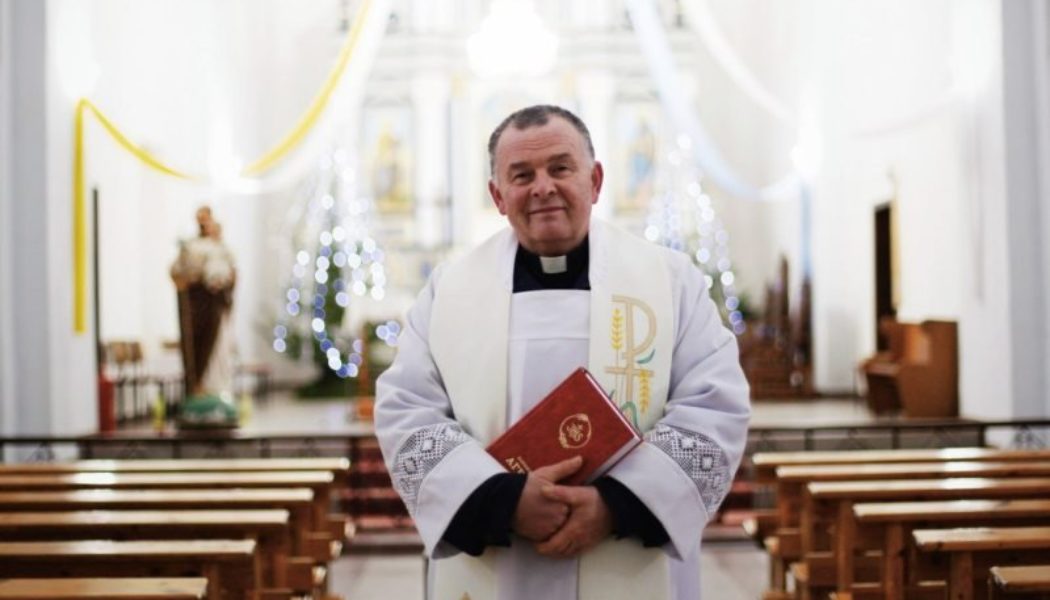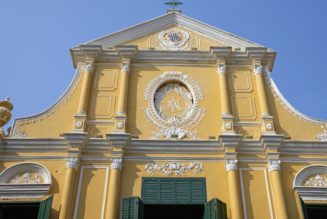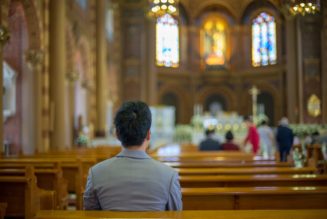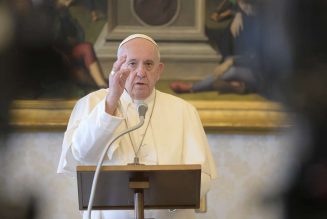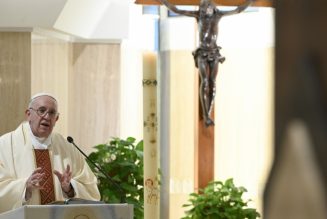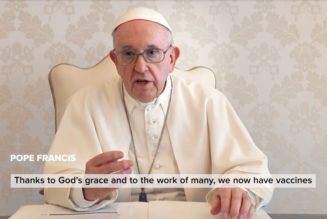
MINSK, Belarus (OSV News) — Father Henrykh Akalatovich, pastor of the Catholic parish in Valožyn, was sentenced to 11 years in a penal colony in Belarus Dec. 30 in a move that highlights the growing persecution of Catholics in the Russia-aligned country.
The priest, who had been on trial since Nov. 25 in a closed session by the Minsk Regional Court, pleaded not guilty but was convicted for “treason against the state,” according to Belsat, an independent news channel airing from Poland. Due to the secrecy of the hearing, the details of the charges against the priest were not publicly announced.
Father Akalatovich, who faced a sentence of seven to 15 years in the gulag, according to local law, is the latest and one of the most visible examples of worsening persecution of the church in Belarus.
The priest was detained Nov. 17, 2023, in Valožyn, a town about 43 miles west of Minsk. He spent more than a year in Minsk’s KGB detention center.
He was kept in “the worst of the detention centers in Belarus, commonly referred to as the ‘Amerika.’ The name refers to the ‘American spies’ held there back in Soviet times. During Lukashenko’s rule, hundreds of his opponents have seen the walls of this place,” the Polish newspaper Rzeczpospolita reported Nov. 24.
The same newspaper reported Dec. 30 that Father Akalatovich will probably serve his sentence in the notorious penal colony of Novopolotsk, the same one where Andrzej Poczobut, a Polish minority activist in Belarus who was arrested in 2021, is serving his sentence.
According to Belsat, Father Akalatovich had previously suffered a heart attack and cancer, and underwent stomach surgery shortly before his detention. The priest requires special care and medical assistance, but there is no information about his health since he was detained more than a year ago.
The Catholic Church makes up a 10th of the 9.4 million inhabitants of Belarus, a former Soviet republic, where, as of Nov. 11, 1,287 political prisoners are incarcerated, including the founder of the Belarusan rights group Viasna, Ales Bialiatski, who won the 2022 Nobel Peace Prize.
Under the new Freedom of Conscience and Religious Organizations law, signed in December 2023 by Lukashenko, educational and missionary activity by churches is restricted, while all parishes must re-register by July of this year or face liquidation.
Fears of new church restrictions follow the departure of the Vatican’s Croatian nuncio, Archbishop Ante Jozic, after a Sept. 15 farewell Mass.
Felix Corley of Forum 18 — a news service that partners with the Norwegian Helsinki Committee in defending freedom of religion, thought and conscience — told OSV News that the driver of persecution of the church is “these regimes do not like any activity that they do not control. So it’s authoritarian instincts.”
“They don’t like it when people gather anywhere. So they don’t like free trade unions, free political parties, free media, free religious communities,” Corley said. “They really want communities to be ones that they can control. This is why they have elaborate and burdensome registration systems. And there are always laws so they can find anything at any moment that they can come down on people with.”
The religious freedom expert added that “we’ve seen both practical measures against religious communities in 2024, all over the region, and also legal measures, which sometimes directly targeted freedom of religion or belief, sometimes more broadly framed, but which affects the exercise of freedom of religion or belief.”
Father Akalatovich comes from the village of Novaya Mysha in the Baranovichi region. He began his ministry in 1984, after graduating from the Riga seminary. He was once praised by the Belarusan regime for using Belarusian language in his sermons, Belsat said, adding that he likely started to be persecuted after rigged elections in 2020.
Lukashenko, who has been in power since 1994, was declared the winner of a new election Aug. 9, 2020. The government said he won more than 80% of votes, a claim that triggered allegations of fraud, set off widespread demonstrations that continue and a police crackdown that led many opposition leaders to flee the country.
